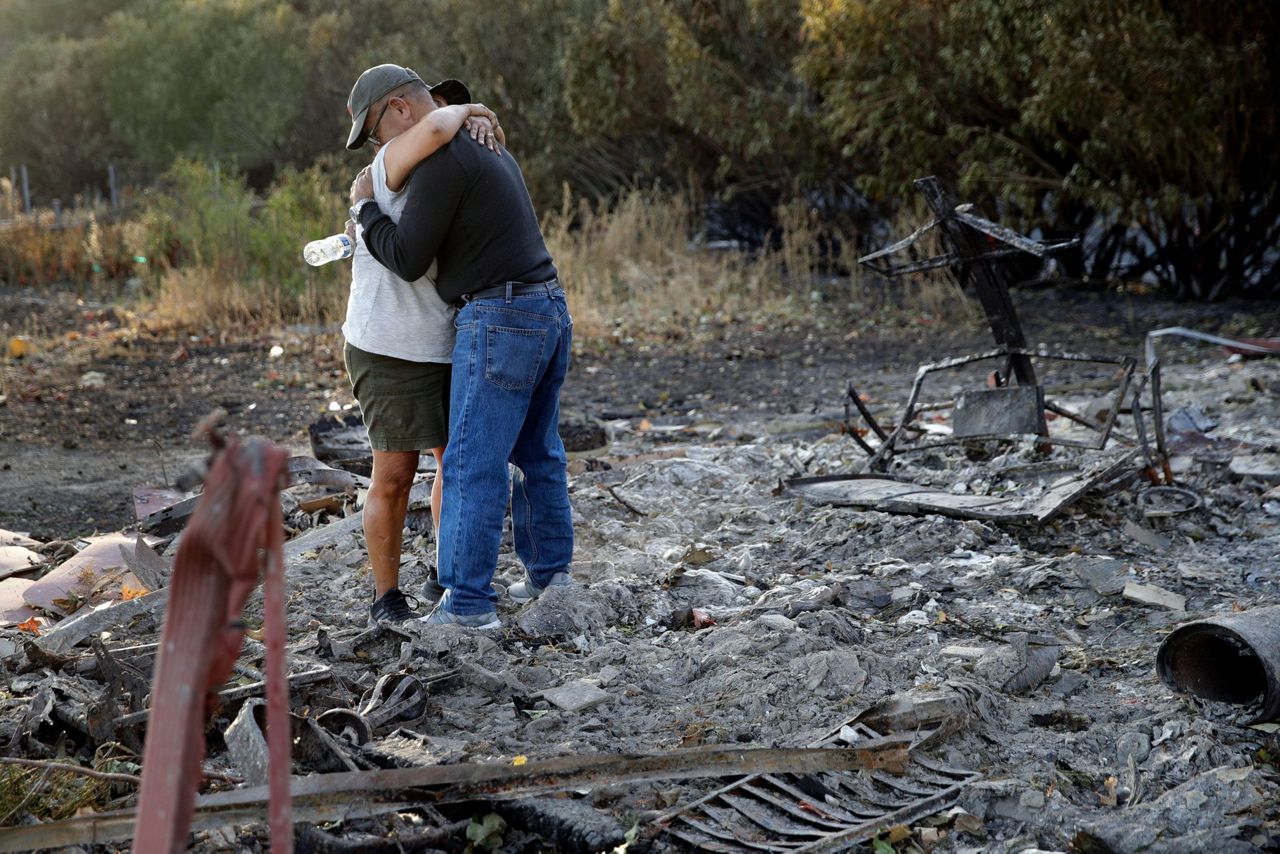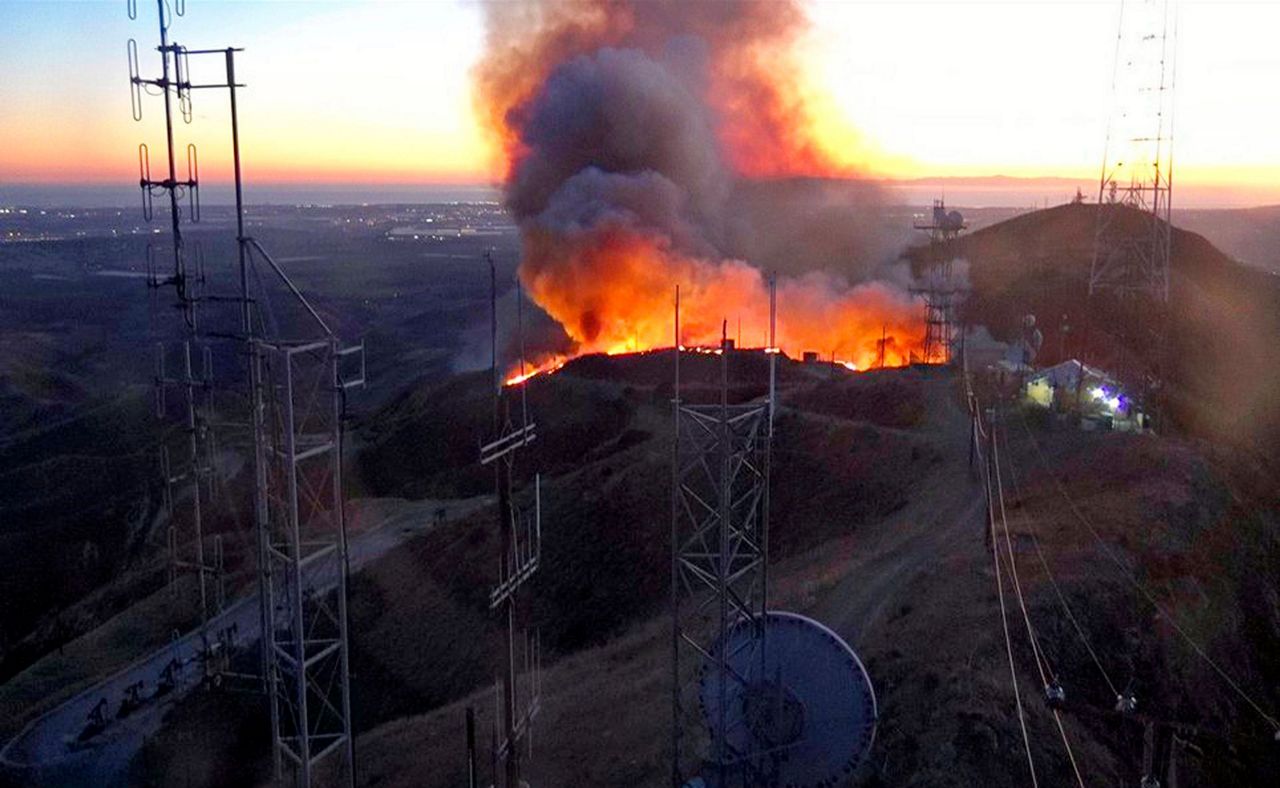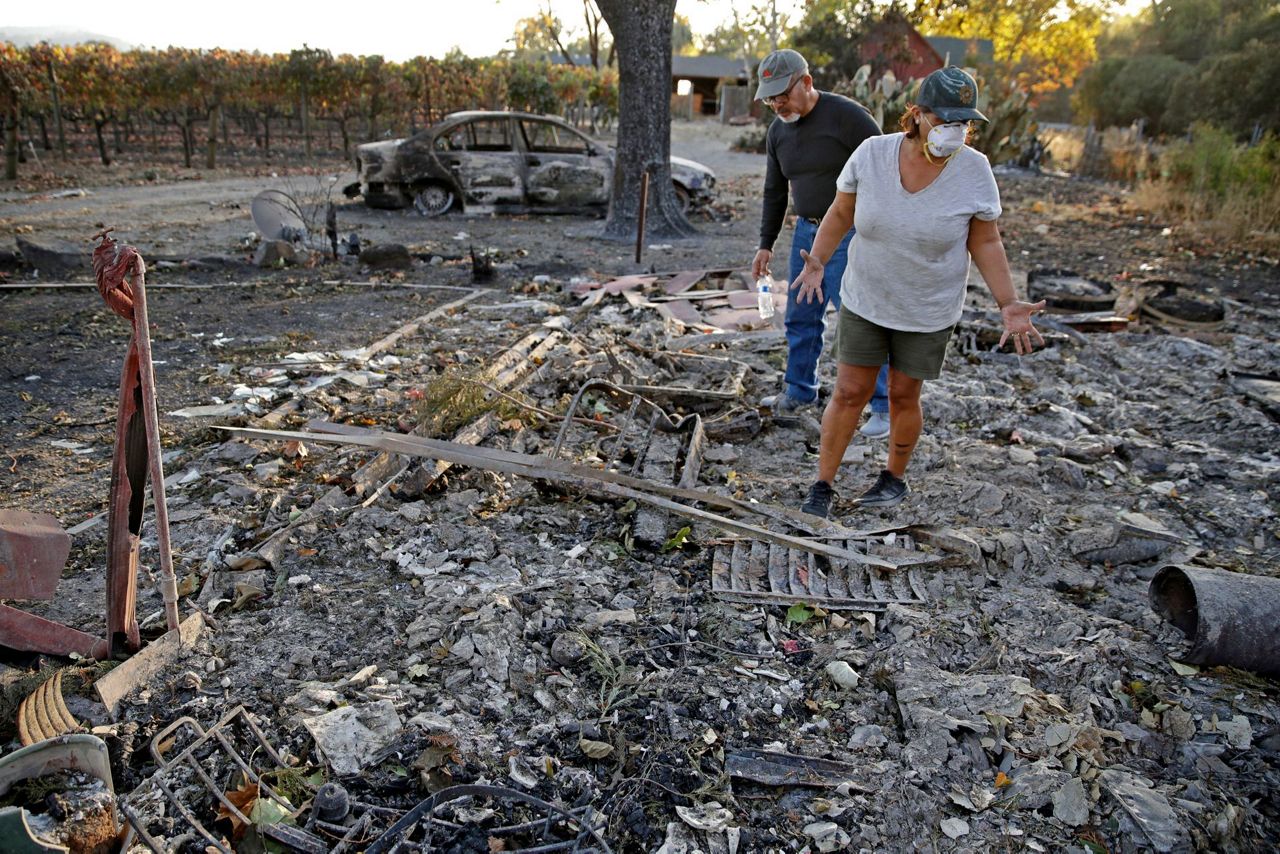SACRAMENTO, Calif. (AP) — California Democrats hoped they would finally bask in the attention of presidential candidates when they moved their primary to the front of the calendar. But as the state battles the twin disasters of wildfires and mass power outages, White House hopefuls are nowhere to be found.
In a field of nearly 20 candidates, no one has traveled to California to visit residents displaced from their homes or commend first responders who have worked around the clock. That includes California Sen. Kamala Harris, who is trying to revive her flagging campaign with an all-in focus on Iowa, the state that ushers in the presidential primary season.
California is the nation's most populous state and its biggest economic powerhouse. It's also home to more than 400 delegates who will be awarded on Super Tuesday to help decide the next Democratic presidential nominee. But the response to the wildfires has been mostly limited to tweets expressing a need to fight climate change and urging people to heed emergency warnings. That's a reminder that the state is still a relatively low priority for most candidates.
The path to the nomination, for most White House hopefuls, still runs through the traditional early voting states of Iowa, New Hampshire, Nevada and South Carolina.
Harris may be missing an opportunity, said Rob Stutzman, deputy chief of staff to former California Gov. Arnold Schwarzenegger, who had a knack for the public-facing side of dealing with disaster.
"It's a chance to look presidential, like a commander," he said. "A great narrative for (Harris) in Iowa right now would be her leading her state during the fires."
Most presidential candidates are spending the weekend in Iowa, where a marquee party fundraiser on Friday night is expected to attract 13,000 people and kick off the final three-month stretch until the caucuses. But some have visited disaster sites in other early voting states.
Pete Buttigieg, the mayor of South Bend, Indiana, unveiled a disaster-relief plan in September in Conway, South Carolina, which was hit last year by a hurricane and will hold its primary three days before California. Minnesota Sen. Amy Klobuchar toured flooded sections of Hamburg, Iowa, last spring.
Former California Gov. Jerry Brown, who signed the legislation moving up the primary and is a prominent climate crusader, said candidates are being short sighted by not doing more to address the wildfires.
"People are not running for president for 15 minutes or five days. Presumably they want to get elected for four years," he said. "In the next eight years, we're going to have worse fires. On many levels, there's plenty to talk about."
He said candidates should talk in detail about forest management and upgrading the nation's utility infrastructure as climate change worsens. So far, he said, the White House hopefuls have spent too much time arguing about other issues, such as the future of the health insurance market.
"The worst is yet to come, but California gives an early warning of the devastation that is in store for us," Brown warned. "The amount of time they spend on the difference between Obamacare and Medicare for All, those are rather fine distinctions."
"The stability of the climate," he said, "has far more to do with health over the next quarter century."
Millions of Californians have lost power since Oct. 9, most of them customers of Pacific Gas & Electric but some of Southern California Edison.
About 180,000 people were forced to evacuate from their homes earlier this week as a fire raged near Northern California's wine country. Some communities had been devastated by a deadly fire just two years earlier. Democratic Gov. Gavin Newsom declared a state of emergency on Sunday as winds topped 100 mph in some places and more fires started. The utilities kept shutting off the power.
Overall, it's a milder fire season for California than in recent years. But the mass blackouts create a fresh layer of anger and fear.
Bernie Sanders has made the wildfires a key part of his push for a climate change package, which he rolled out in California this summer after touring a Northern California town where a fire sparked by PG&E equipment killed 85 people last year.
Days after millions of Californians lost power, his campaign sent an email railing against PG&E and sharing the addresses for evacuation centers in dozens of California counties. Earlier this week, he said it's time to consider public ownership of utilities. PG&E and California's other two large utilities are investor-owned.
Sanders' plan calls for investing more than $500 billion to upgrade the electrical grid with actions like burying power lines to prevent fires.
His moves reflect the unique emphasis he's placed on California, putting more staff members on the ground here than any other campaign and talking with ease about local issues. But he has not traveled to California amid the recent round of fires.
For her part, Harris introduced legislation in Congress to provide more money for communities to guard against wildfire, though a dollar amount is not yet attached. She's also called for fresh investments from the Federal Emergency Management Agency in microgrid technology that could limit the scope of blackouts, and she's encouraged her supporters to donate to a wildfire relief fund.
In her role as senator, she's spoken regularly with local and state officials on the phone, her Senate office said.
But she has not returned to California for any public events, even as her Los Angeles neighborhood was evacuated due to wildfire risk. She attended a Hollywood fundraiser with Newsom last week. Harris's campaign did not respond to repeated questions about whether she planned to publicly appear in her home state.
Joe Biden tweeted about the fires on Thursday, more than a week after they began.
Massachusetts Sen. Elizabeth Warren shared on social media a message about the economic and safety consequences of shutting off power.
Warren, like Sanders, has addressed fire prevention in her climate plan. She's called for investing in forest restoration and upgrading the energy grid to make it easier to avoid widespread power shutoffs.
While utility regulation is primarily the job of the state, the federal government owns much of California's forest land. The solutions to better manage forests, including prescribed burns, are often publicly unpopular.
"It's complicated, but it's a very important matter for the whole West," Brown said. "When they come out for these Western primaries, it's something they ought to talk about."
Copyright 2019 The Associated Press. All rights reserved. This material may not be published, broadcast, rewritten or redistributed.





